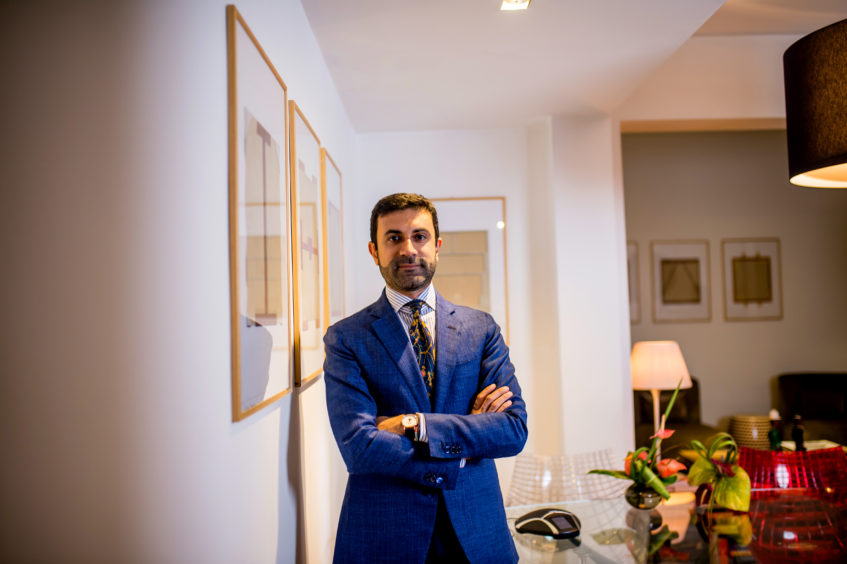
The cards have been shuffled on the global investment table and all eyes are on Africa, writes Hasnaine Yavarhoussen, CEO of Groupe Filatex.
COVID-19 has caused unprecedented disruptions around the world. It has demonstrated in the most obvious way the vital role of energy services in countries’ responses to the crisis. This ranges from providing clean water for basic hygiene to powering healthcare facilities, to enabling communications and IT services that help keep people connected during social distancing.
Governments are already drawing up economic recovery plans and the way African countries structure and implement their post-COVID-19 strategies will play a crucial part in the continent’s long-term development prospects.
Despite the global economic slowdown, the case for investing in Africa could become stronger after the pandemic – with the energy sector at the core of the continent’s post-pandemic plans.
For decades, investors have associated African markets with high risk, but COVID-19 has made even safe markets risky, shuffling the cards on the global investment table.
Recent geopolitical, financial and trade tensions have also put pressure on advanced economies in Europe, the US and China. These developments have made investors – whose appetite for return on investment has grown – turn elsewhere, reassessing their risk profiles even for least-developed countries, such as those in the sub-Saharan Africa region.
Time to shine
This could be the chance for Africa to shine. Compared to other markets, it represents a young continent that is poised for high growth bolstered by regional integration.
The recently launched African Continental Free Trade Agreement (AfCFTA) represents the world’s largest free trade area. It could pave the way for the region’s competitiveness as an investment destination for decades to come.
When it comes to investment flows, renewable energy has become one of Africa’s most attractive sectors in the eyes of international investors and not without reason. The learning curve for green energy deployment in Africa is improving thanks to the rapid decrease in the cost of renewable energy technologies.
In particular, the costs for electricity from utility-scale solar photovoltaics dropped 82% between 2010-2019, while a similar trend in wind projects reflected a 50-60% price drop over the same period.
These favourable economic trends have led to a promising outlook for power generation from renewable sources, which is expected to expand significantly across Africa even after the hit of the pandemic. Renewables are forecast to make up almost half of the power generation growth in the sub-Saharan parts of the continent by 2040.
Decentralised
As we move towards an increasingly electric world, more power will be produced by decentralised, renewable sources such as microgrids, wind farms, private solar panels and batteries.
The growing adoption of electric vehicles, the electrification of heating systems, and the proliferation of distributed energy resources (DERs) – such as solar panels and wind turbines – will require a delicate balancing act to match supply with demand, considering Africa’s fragile grid.
For this, governments, businesses and investors should take note of how smart renewable energy projects – particularly solar-powered options – have been aiding the fight against the pandemic.
For many communities in the region, the deployment of such solutions under difficult settings has been life-saving. Solar-powered cold chain technologies in particular, are proven game-changers in storing and preserving vaccines under very low temperatures.
Solar photovoltaic systems’ flexibility allows them to be deployed and adapted to the local grid, or even stored in batteries. This provides healthcare facilities with vital energy, often more reliably than the existing public grid.
This said, the importance (and popularity) of African off-grid and mini-grid projects is expected to grow considerably. They are often one of the most reliable and cost-effective way to power thousands of rural communities and improve energy supply for schools, hospitals and businesses across the continent.
Local roles
However, investment in critical renewable energy projects cannot achieve the scale that will permit it to shape Africa’s development agenda without African firms taking a leading role.
African businesses can become competitive, profitable and world class when given adequate support from foreign investors and Development Financing Institutions (DFIs). DFIs and foreign investors alike can do more to support African-led energy efforts, by raising financing for energy projects and adjusting their respective risk analyses.
Hopefully, in the years to come we will see more companies like Groupe Filatex, our homegrown Malagasy company, which is currently responsible for over 30% of Madagascar’s private energy production, and expanding its investments to energy projects in other African markets. Until then we need more DFIs and FDI to turn to Africa.
Investing in renewable energy is key to ensure a rapid economic recovery and put Africa on a sustainable development trajectory as soon as the pandemic ends.
This crisis has been a huge challenge. It can also be a unique opportunity for investors, business leaders and governments to envision and shape Africa’s energy future. A new age of energy investment in Africa is on our threshold.
Since taking the reins of Groupe Filatex in 2011, Hasnaine has reformed the business’s structure and strategy. Today, Groupe Filatex has become a major player in Madagascar’s real estate, free zones and energy sectors, and is now looking to export its expertise internationally
Hasnaine has also been instrumental in delivering programmes that will leave a lasting impact on Madagascar, to support the country in reaching its economic and social development goals. Through these efforts, Groupe Filatex aims will create high quality jobs across the country, helping to support Madagascar to deliver an innovation-driven and competitive economy.
Recommended for you
